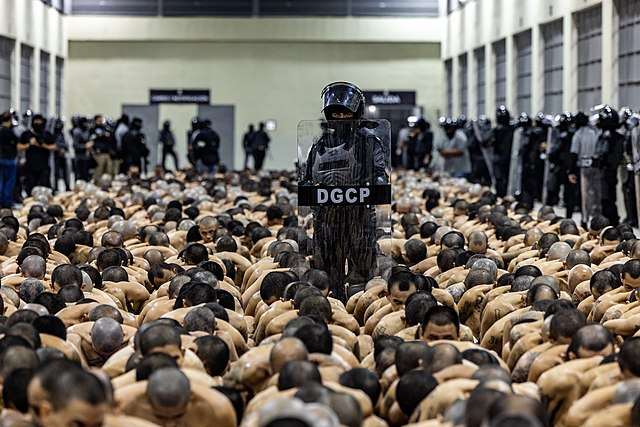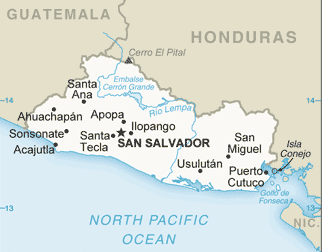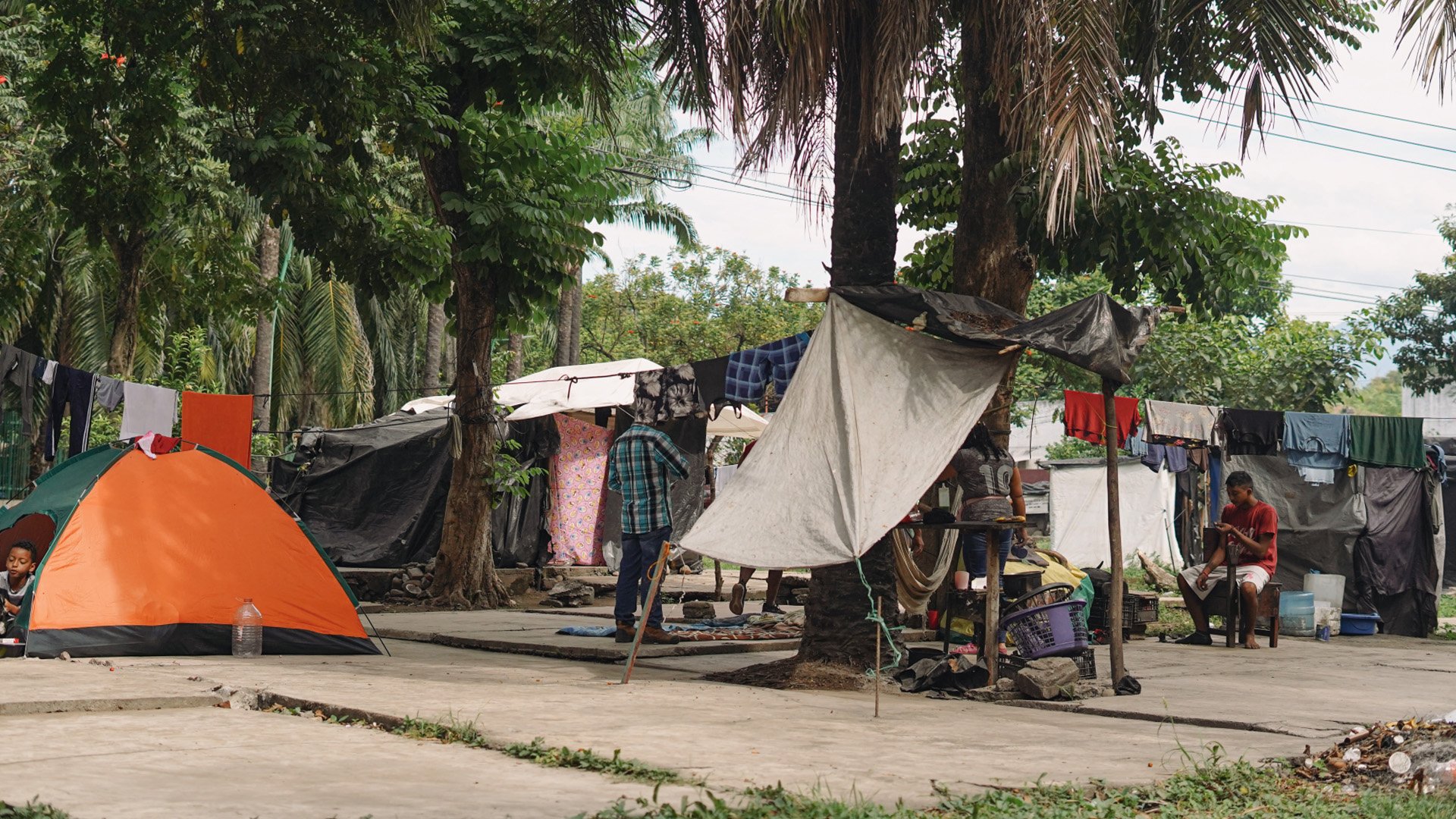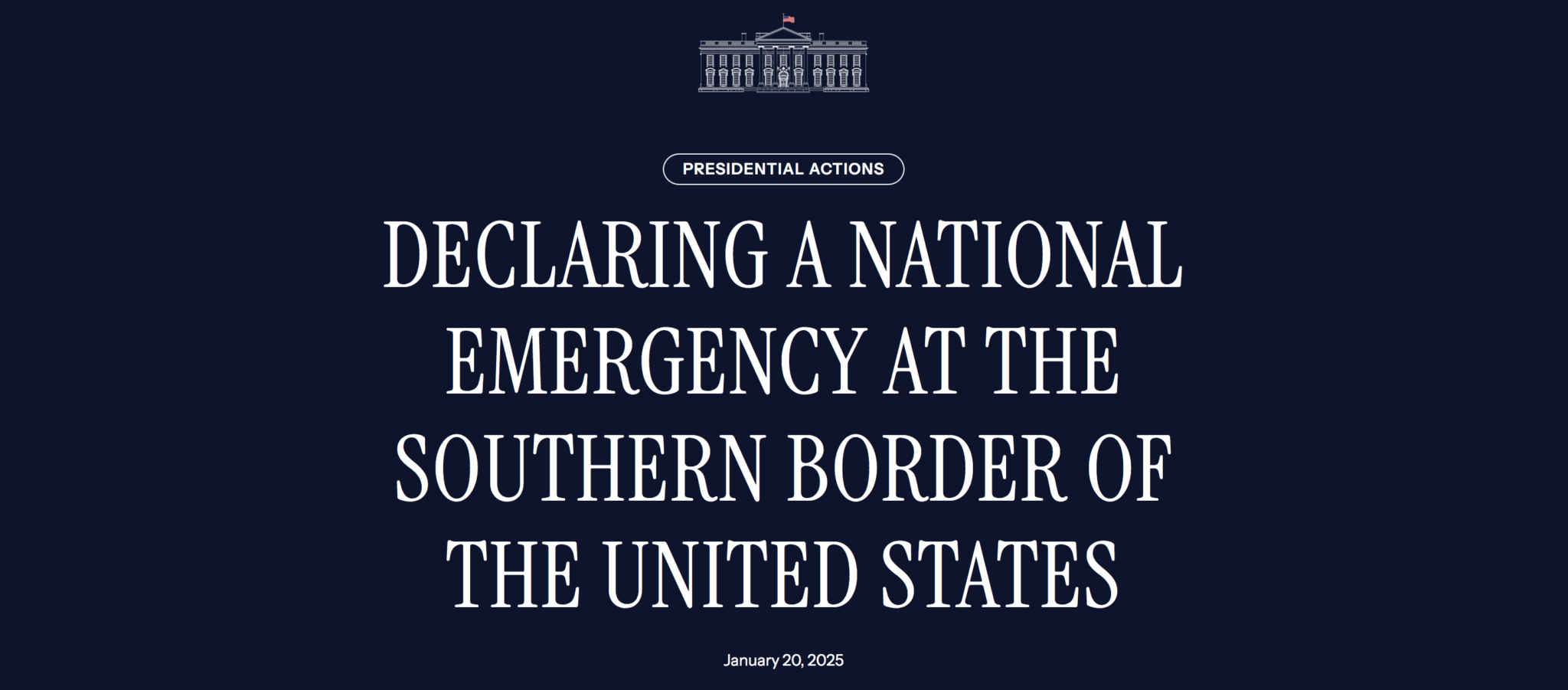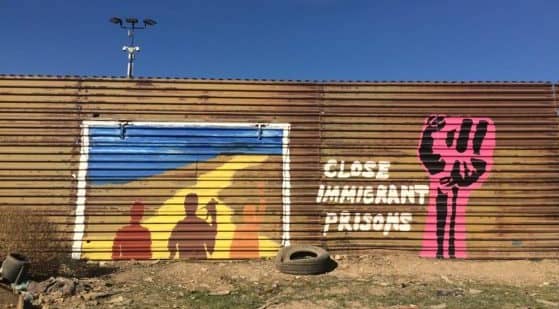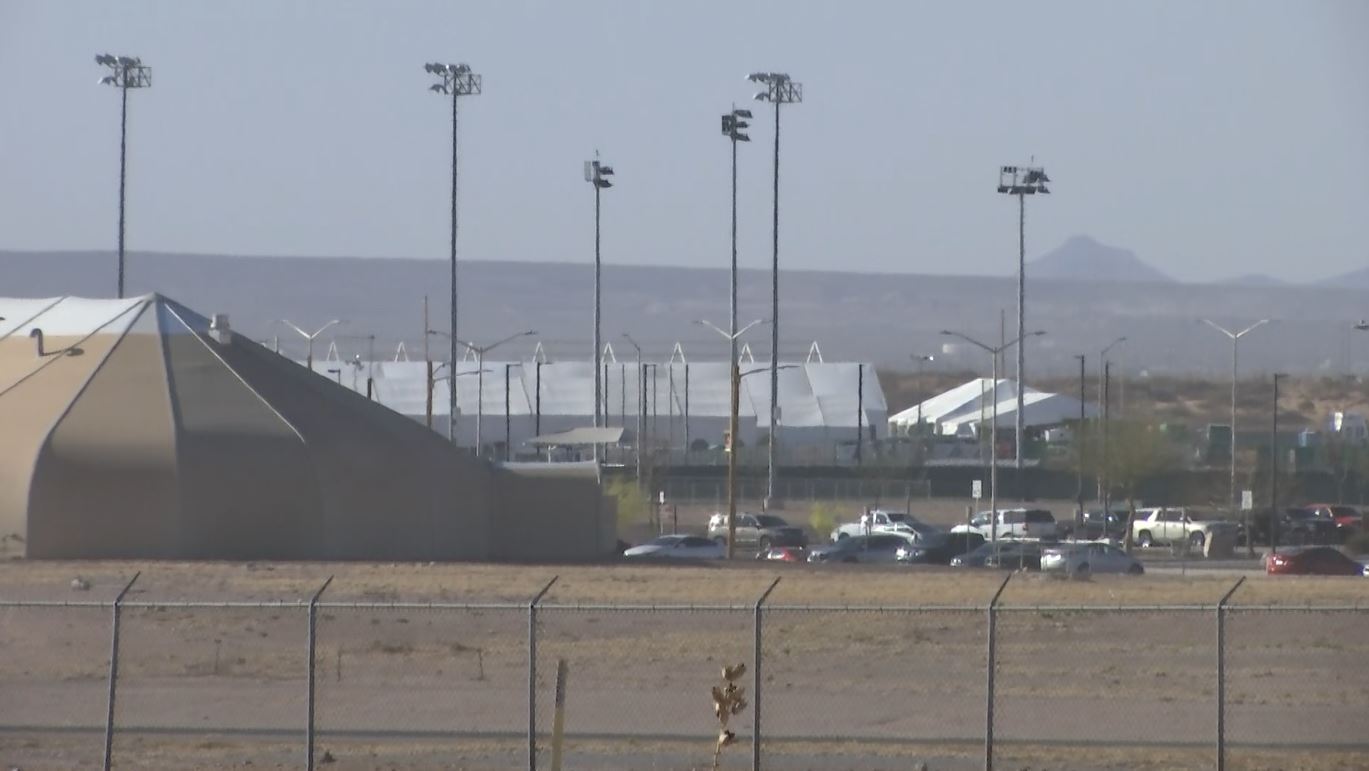
Abuses at Fort Bliss ICE detention facility
A coalition of civil and human rights organizations is calling for the closure of a massive immigration detention facility at Fort Bliss, alleging guards have beaten detainees and threatened violence, criminal charges and imprisonment in attempts to coerce even non-Mexican migrants into crossing the border into Mexico. The groups, including the ACLU and Human Rights Watch, sent a letter to federal officials detailing the allegations based on interviews with more than 45 detainees. They describe guards using physical force, including abusive sexual contact, against immigrants who refused third-country deportations. The letter also alleges detainees face insufficient food, medical neglect, squalid conditions with sewage flooding living areas, and weeks without outdoor access. The tent facility, erected months ago on a former Japanese American internment camp site within the Fort Bliss complex, dubbed “Camp East Montana,” currently holds over 2,700 people. (Photo via Border Report)



